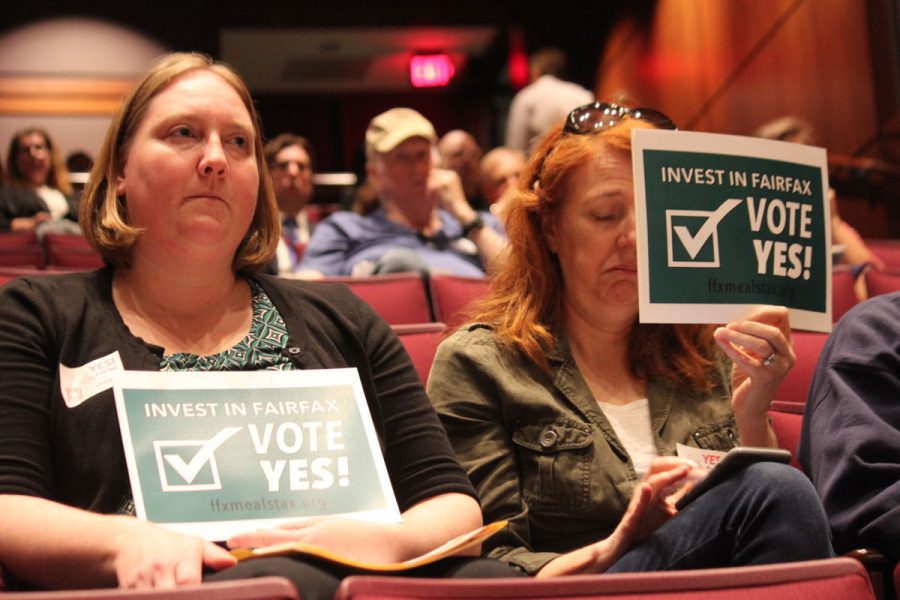Fairfax County rejects Meal Tax
More money for meals means major cutbacks for schools; 54 percent of Fairfax County voted against a proposed 4 percent meal tax which would have contributed an estimated $96 million to Fairfax County Public Schools (FCPS) and the county government.
The tax, which would have been applied to all prepared meals from restaurants, grocery stores, cafeterias, movie theatres, coffee shops and food trucks, was expected to contribute 70 percent of its revenue to FCPS.
FCPS will have to deal with the implications of the vote on top of its pre existing deficit. One of the expenses the county will reconsider was the $100 million that were to be funneled into the salaries of the teachers. Reconsidering this expense will make it harder for FCPS to compete with neighboring districts.
“It should have passed because it was an opportunity to make FCPS teacher salaries competitive with neighboring salaries– which they are not right now,” James Madison High School English teacher Joy Korones said. “FCPS will continue to lose qualified and talented teachers to other school systems, who pay more highly and value their excellence.”
Now FCPS schools must search for a different source of income– or make some major changes regarding the appropriation or acquisition of funds.
Though some residents lament the loss of money for FCPS, some question whether the proposed tax revenue would be used in the advertised way.
“I didn’t think that FCPS would actually get the money from the county,” senior Julia Sheehy said. “I’m glad [the tax] didn’t pass. They might have added money somewhere and then taken it away somewhere else. In the end, the county wanted the money.”
Reports show that while 184,000 residents voted for the tax, 231,920 voted against. This is not the first time a proposed meal tax in Fairfax County was shut down. In 1992, the tax was rejected. Because of FCPS and the county government’s growing deficit, however, the idea was reintroduced last spring. In order to compensate for their prospective loss of revenue, the county offered to give $3 million directly back to the restaurants. Many restaurants, however, still opposed the tax and how it could affect their business.
Silverado, a local restaurant, publicly opposed the tax with a large sign in front of its building. The Great American restaurants, including Silverado, are major Fairfax County establishments.
Those who opposed the tax argue that the county government needs to work from the inside, fixing problems with infrastructure and the usage of money, and that more money will not necessarily help with the problem.

Senior Sadie Modica has been on the A-Blast staff for three years. In addition to her responsibilities as Co-Editor-in-Chief, Sadie is an IB Diploma candidate...








